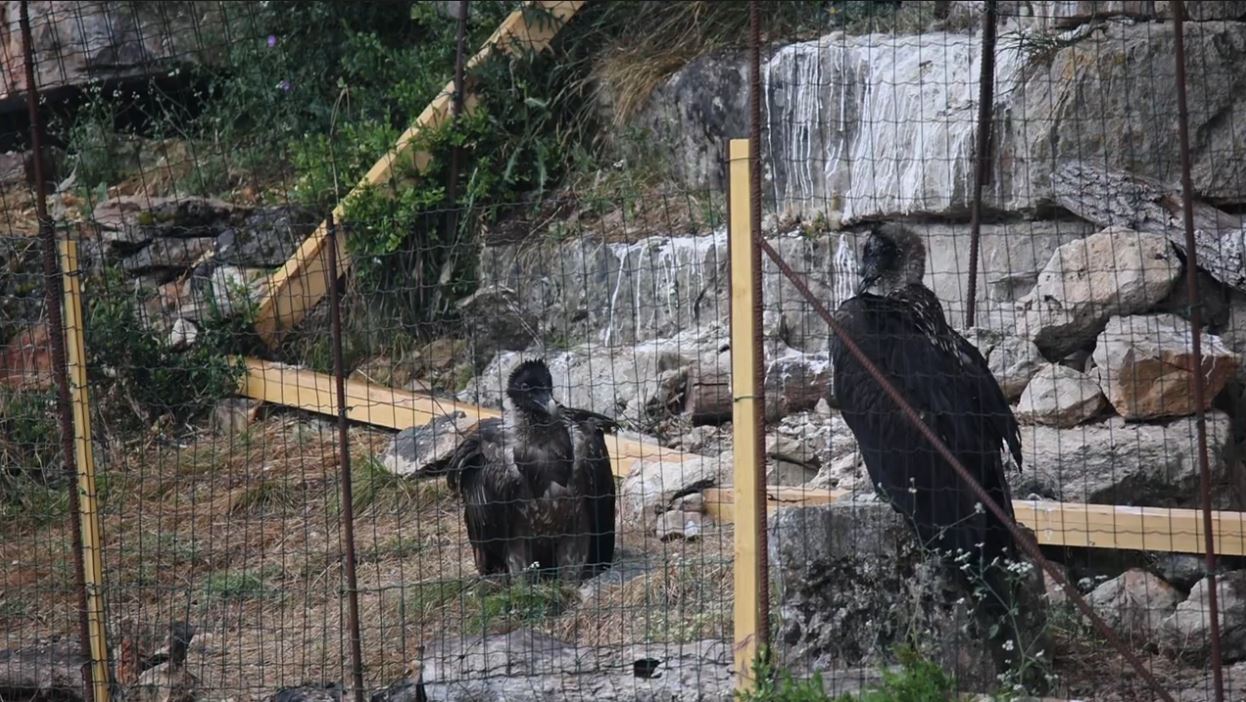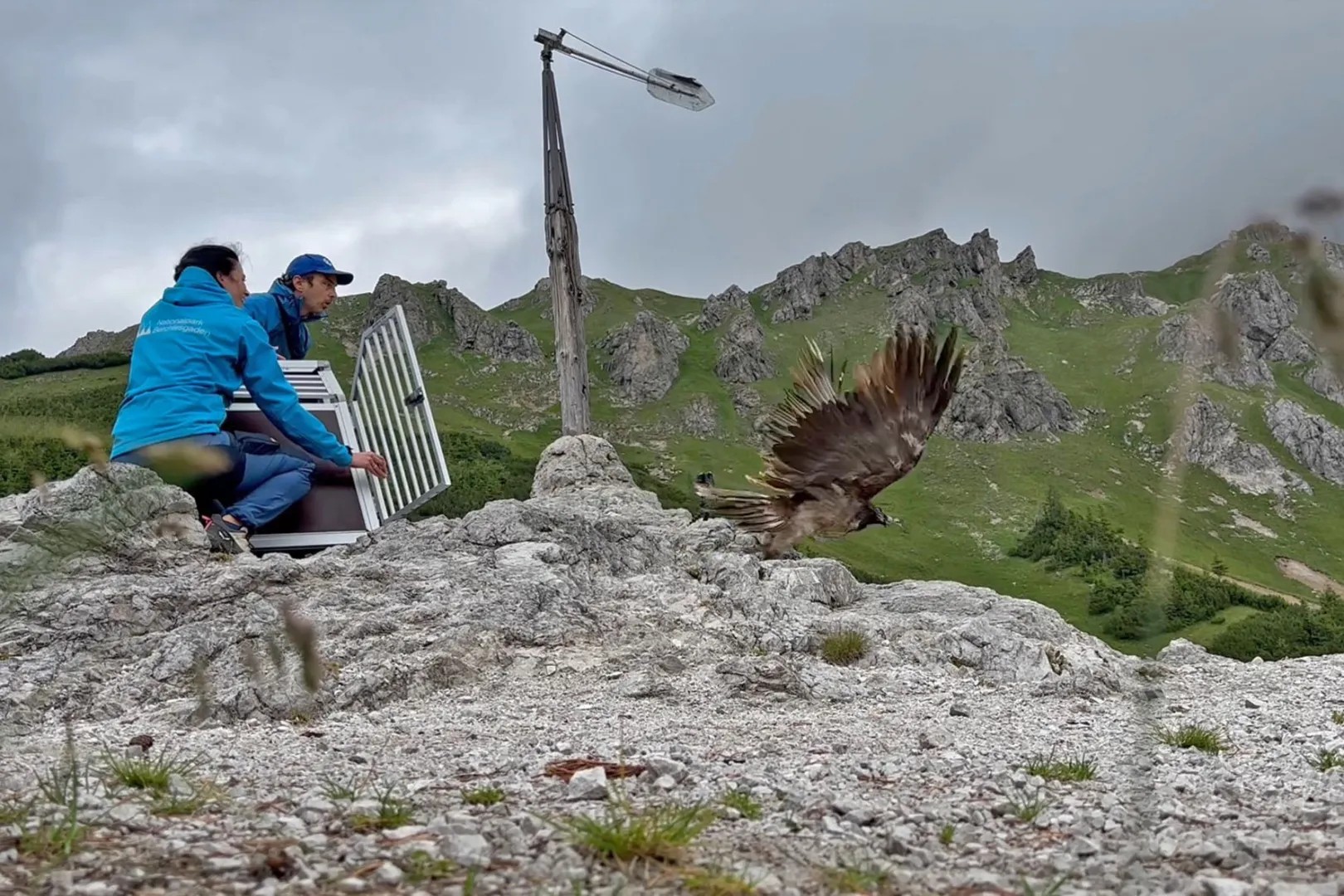The sole egg of one of the few remaining bearded vulture pairs in Corsica was extracted from a wild nest on the 26th February by a team from the Parc Naturel Regional de Corse and from the Vulture Conservation Foundation – a last ditch effort to try to prevent the disappearance of this species from the island.
This pair had not bred successfully for the last 10 years, so vulture conservationists tried to collect the egg to try to hatch it artificially and at least save the genetic pool.
The bearded vulture population of Corsica is the last surviving genetic pool of a former meta- population including Sicily, Sardinia, Corsica and the Alps. Not a single bird of this originally large population survived in captivity.
During the last 25 years the bearded vulture population has been declining in Corsica, with the decline most evident in the last few years – from 10 pairs 10 years ago to the current 5. The number of fledglings has also been very poor – between 0 to 2 fledglings per year).
This situation was mostly caused by 4 main threats:
-
Low genetic variability and inbreeding (the mean number of alleles per locus is much lower than in larger historic and recent populations, and also than in other island populations like the historic Sardinian or the recent Crete population)
-
Mortality due to anthropomorphic reasons (shooting, poison, lead intoxication, etc.)
-
Lack of food resources
-
Stochastic demographic events due to very low number of individuals
An expert group that included local, national and international institutions then drafted an emergency action plan to redress the dramatic decrease and secure the surviving of this unique genetic pool. Two main actions have been agreed
-
increase in situ the genetic diversity of this population by restocking with birds coming from the captive breeding network
-
secure in long term the Corsican genetic information in an ex situ program, including Corsican birds in the Bearded Vulture EEP: create a Corsican genetic reserve.
Parallel to these, it was deemed necessary to continue to provide supplementary feeding to the Corsican birds, through a revamped and intensive programme of provisioning food to supplementary feeding sites. In the long term, actions to promote the increase of the wild moufflon population, and also the extensive grazing in the mountains, would be necessary.
The collection of the bearded vulture egg that took place this week is thus one part of this integrated plan to save the species, and is part of an operation that is funded by the Fondation Prince Albert II de Monaco and the Barcelona Zoo Fundació.
The egg is fertile but very small (only 170g) and it´s air membrane has some strange shape. If a chick hatches, then it will be raised through foster parents within the bearded vulture captive breeding network. Please watch this space for news!
Photos: Nicolas Robert & Jean François Seguin (PNRC)



